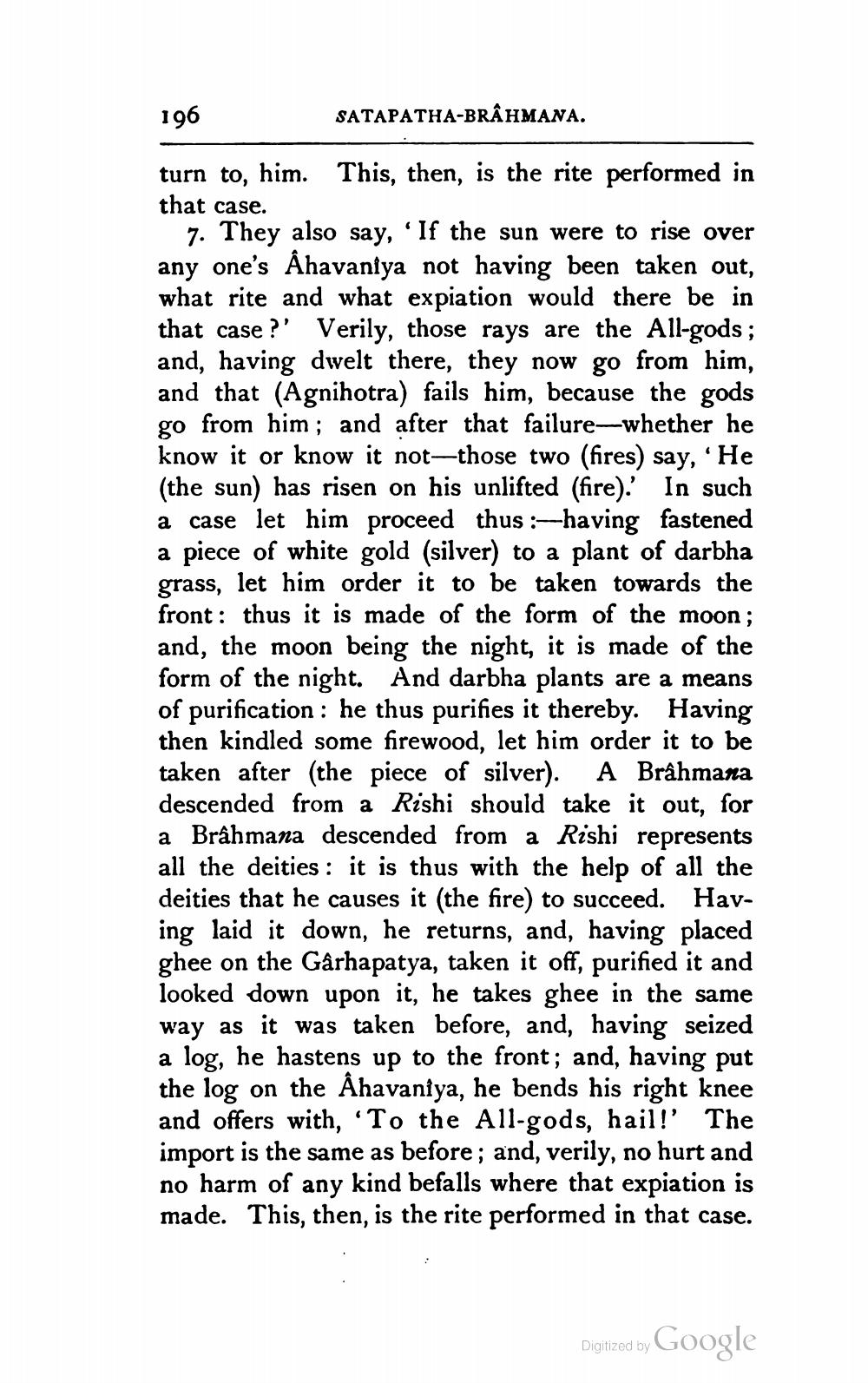________________
196
SATAPATHA-BRÂHMANA.
turn to, him. This, then, is the rite performed in that case.
7. They also say, 'If the sun were to rise over any one's Ahavaniya not having been taken out, what rite and what expiation would there be in that case ?' Verily, those rays are the All-gods; and, having dwelt there, they now go from him, and that (Agnihotra) fails him, because the gods go from him; and after that failure-whether he know it or know it not—those two (fires) say, 'He (the sun) has risen on his unlifted (fire). In such a case let him proceed thus :-having fastened a piece of white gold (silver) to a plant of darbha grass, let him order it to be taken towards the front: thus it is made of the form of the moon; and, the moon being the night, it is made of the form of the night. And darbha plants are a means of purification : he thus purifies it thereby. Having then kindled some firewood, let him order it to be taken after (the piece of silver). A Brâhmana descended from a Rishi should take it out, for a Brâhmana descended from a Rishi represents all the deities : it is thus with the help of all the deities that he causes it (the fire) to succeed. Having laid it down, he returns, and, having placed ghee on the Gârhapatya, taken it off, purified it and looked down upon it, he takes ghee in the same way as it was taken before, and, having seized a log, he hastens up to the front; and, having put the log on the Ahavaniya, he bends his right knee and offers with, ‘To the All-gods, hail!' The import is the same as before; and, verily, no hurt and no harm of any kind befalls where that expiation is made. This, then, is the rite performed in that case.
Digitized by Google




